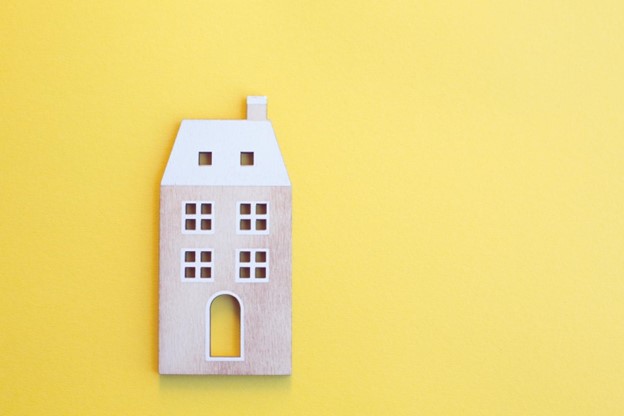
In recent years, lower interest rates have lured many optimistic investors to take on debt in order to invest and potentially earn higher returns. While this ‘sure-win’ technique many investments gurus swear by has created success, it has also resulted in some individuals losing their homes due to loan repayment struggles. Most of us are familiar with the term “credit score” in relation to credit card applications, but does it also play a role in obtaining a mortgage loan?
What does credit score mean?
Essentially, your credit rating is akin to your ‘grade’ of how good a borrower you would be. A good borrower is one who would be able to repay their loans on time, and unlikely to default.
Here is a rough guide on the risks of different borrowers, from the highest probability of defaulting on their loans to lowest.
| Credit score range | Risk grade | Probability of default |
| 1000-1723 | HH | 3.46%-100.0% |
| 1724-1754 | GG | 2.28%-3.46% |
| 1755-1781 | FF | 1.58%-2.28% |
| 1782-1812 | EE | 1.03%-1.58% |
| 1813-1824 | DD | 0.88%-1.03% |
| 1825-1843 | CC | 0.67%-0.88% |
| 1844-1910 | BB | 0.27%-0.67% |
| 1911-2000 | AA | 0.00%-0.27% |
How to check your credit history
You may check your credit rating history at the Credit Bureau. It costs under $10 to get your report or banks will also offer it for free when you sign up for credit cards.
What affects my credit rating?

There are 4 main factors that affects your credit rating:
1. The amount of loan taken
If you already have taken a high amount of loan, your credit rating is likely to be lower. Assuming your income stays relatively constant, you would have less extra income to make additional debt installments. This increases the chances of you defaulting as a borrower.
2. Multiple credit applications within a short period
Through taking up or applying for multiple new credit facilities with little buffer time in between, you are signaling to banks that you are aggressive with your borrowings. Much like the asset bubble that led to the 2008 subprime mortgage crisis in the US, borrowers that take on more debt than they can handle (possibly to take advantage of low interest rates) are also at higher risk of not being able to repay their loans. In short, your credit rating will fall.
3. Late repayment
Banks wish to collect payments in the most hassle-free and cost-effective option possible. This translates to borrowers that are able to repay their loan installments promptly. Thus, late repayment of loans would pull down your credit score.
4. Duration of credit history
Lenders prefer borrowers with a longer credit history, proving their consistency and ability to manage their finances over time.
What if I don’t have a credit rating?
If you are still in school or fresh out of university, you might not have a credit history yet. Consider applying for a credit card and building your credit history. Without a trail proving your credit worthiness, it would be difficult to establish a good credit rating. Of course, doing so is insufficient – you have to remember to pay your monthly payments on time in order to achieve your good credit.
How does this affect my home loan?

As mentioned, your credit score suggests your financial capability to repay your loans on time as a borrower. A higher credit score signals to financial lenders that you are a reliable borrower, improving your chances of getting a home loan. Be it a HDB flat or a condominium unit, banks and HDB want to ensure that you are a reliable borrower before dishing out the loans by assessing your financial capability through a Housing Loan Eligibility (HLE) or In Principle Approval (IPA).
- Loan quantum
Having a good credit history typically would lead to a higher loan quantum by the bank for your mortgage. Essentially, the higher amount of existing debt you have already taken up, the less bandwidth you would have to repay your new loan. The current measures on Total Debt Serving Ratio (TDSR), and Mortgage Servicing Ratio (MSR) are similar tools to ensure that borrowers borrow within their means.
- Interest rates
With a higher credit score, you would be deemed as a good borrower with a lower possibility of defaulting on your loans. As such, banks also take up less risks when lending you the sum of monies. This means that all else being equal, you are likely to enjoy lower interest rates compared to another buyer with a similar background but a poorer credit rating.
How to improve your credit rating
Credit reports often only reflect your credit history for the previous 12 months. In other words, you would be able to pull up your credit score through adopting the following tips for the next few months:
- Stay within your credit limit and your means
- Pay your loan repayments on time
- Avoid applying for multiple credit avenues at one go
- Avoid having too many sources of debt, so that you can keep track of them
All in all, maintaining a good credit score rating is a key criteria to obtaining your loan approval. Although borrowing at a low interest rate environment for investment purposes may seem like an attractive opportunity, it is important to carefully consider the risks involved and ensure that one has the means to repay the loan. Financial lenders wish to only lend to reliable borrowers. If you wish to find out how to improve your credit score or start building your AA credit history, reach out to us for a chat today!
Want to find the best mortgage rate in town? Check out our free comparison service to learn more!
Read more of our posts below!

